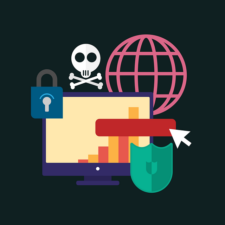
It has been observed that the notorious Legion malware, infamous for its damaging activities, has received a significant upgrade recently. As a consequence, business owners in Austin, Round Rock, and Georgetown, Texas, need to step up their cybersecurity defenses, particularly those involving Secure Shell (SSH) protocols and a variety of cloud services.
##The Advanced Legion Threat
The crucial point lies in understanding the evolved potential of Legion. This Python-based tool has been enhanced to infiltrate SSH servers and snatch credentials from particular cloud services such as Amazon Web Services' DynamoDB and CloudWatch. This considerable upgrade broadens Legion's range, demonstrating its expanding threat.
##Understanding Legion's Modus Operandi
Legion capitalizes on web applications' misconfigurations to pilfer passwords and crucial information. It also seizes the opportunity from servers that run programs regulating website content. It employs the Telegram messaging app to discreetly dispatch stolen data, and it uses purloined password details to bombard US phone numbers with unwanted text messages.
##Risks of SSH and Cloud Services Exploitations
This malware update poses an amplified risk for your business. SSH connections, which are often used to securely control web servers and other server types, have now become primary targets. Your cloud platforms are no longer immune to threats either. Laravel web applications associated with AWS are likewise endangered.
##Implementing a Robust Cybersecurity Plan
In order to counteract these threats to your business, there are several steps that you can undertake. Start by intensifying your authentication methods. Deploying complex passwords, dual-factor authentication, and biometric solutions can significantly fortify your business's defense.
Further enhance your network security measures by using firewalls, intrusion detection systems, and encrypted communication. Keep your software and operating system up-to-date to ensure they're fortified against the latest threats.
Make sure to adhere to SSH best practices such as:
- Disabling root logins
- Limiting users who can access SSH
- Opting for key-based authentication over password-based
- Implementing an intrusion detection system
Perhaps the most vital element is to educate your workforce. They form the first line of defense and should be well versed in recognizing phishing attempts, suspicious links, and malware indicators.
##Planning is Paramount
Despite implementing all the precautions, the possibility of an attack always lingers. It's therefore vital to prepare an incident response plan detailing how to isolate affected systems, recover data, and report security breaches.
The recent Legion malware upgrade underscores the ever-evolving nature of cybersecurity threats. By incorporating these preventive measures, you can shield your business from SSH and cloud service vulnerabilities. Because when it comes to your business's safety, going the extra mile is worth it.
